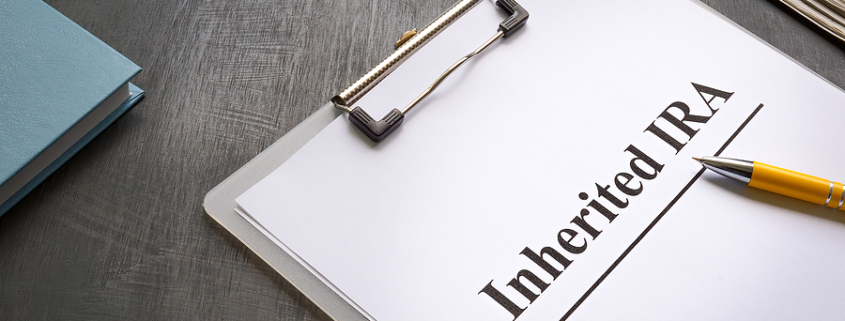What Happens When You Inherit an IRA?
The short answer is: it depends. Navigating what happens after inheriting an IRA (individual retirement) account can seem overwhelming, but we at Lonich Patton Ehrlich Policastri are here to help you know your options and determine your next steps. Estate planning is one of our areas of expertise, and we are more than happy to help you make decisions regarding your new inheritance.
Know what kind of IRA you have inherited.
The very first thing to do upon finding out you have inherited an IRA is to figure out important details such as what type of account it is. There are multiple types of IRAs, but the most common two are a traditional IRA and a Roth IRA.
- With a traditional IRA, you contribute money before you are taxed on it. The money contributed might be able to be deducted from your taxes, and the money invested grows tax-deferred until withdrawing the money. Oftentimes retirees are in a lower tax bracket when they were working, the money might be taxed at a lower rate when they do begin withdrawing funds.
- With a Roth IRA, you are taxed in your contributions before investing them. This means that when you do begin withdrawing money, you will not pay taxes on it, as long as you meet certain requirements.
Knowing the account type is significant because the tax treatment remains the same for the heir as it was with the original owner. The beneficiary will typically have to move the assets from the original account over to a newly opened inherited IRA in their name.
What type of beneficiary are you?
Anyone is able to inherit an IRA, but the rules for what they can do with it differ depending on whether the heir is the spouse of the deceased or not. Due to the passage of the SECURE Act of 2019, non-spousal heirs who inherit an IRA on or after January 1, 2020, now have even more limited options than before. Funds must be spent within 10 years of the original account owner’s passing, regardless of account type. Spouses tend to have more freedom with how they manage their inherited IRA.
Other factors that come into play include when the account was opened and if the original investor had begun taking out their required minimum distributions (RMD) for a traditional IRA.
There is no one-size-fits-all explanation for inheriting an IRA.
Each situation is different, and every heir faces different circumstances. Here at LPEP Law, we have highly qualified trust and estate lawyers on staff who are eager to help you determine your next steps once you inherit an IRA. Click here to schedule a free 30-minute consultation with us, or give us a call at 408-553-0801. We are more than happy to equip you with the knowledge of how to proceed as a beneficiary. We are committed to treating every individual client with the utmost respect and professionalism, and to making this journey as easy as possible for you.




